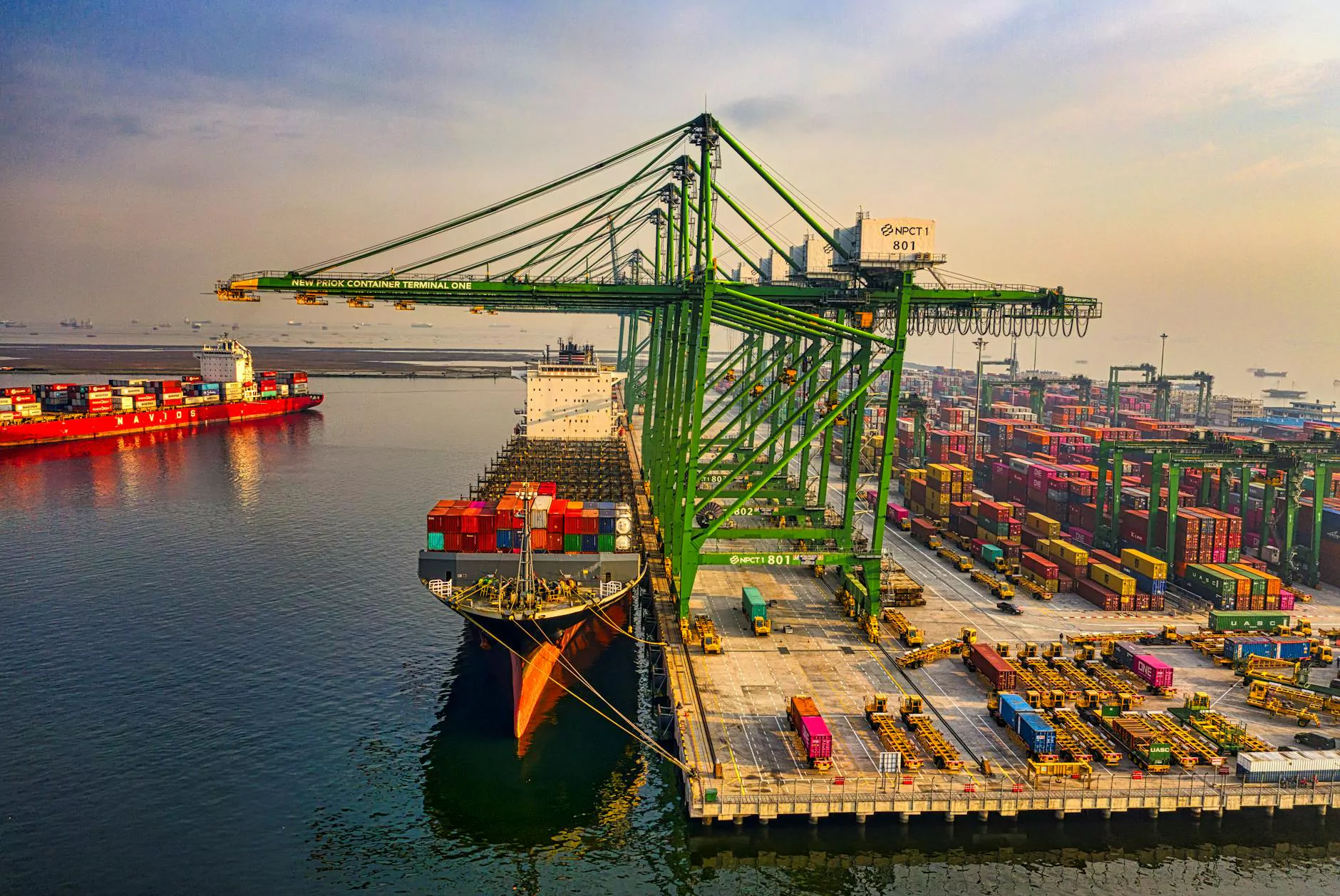The Ultimate Guide to Air Freight: How to Get an Online Quote

In today's globalized market, businesses rely heavily on efficient transportation methods, and one of the most crucial elements in this is air freight. Air freight enables businesses to deliver goods swiftly and reliably across vast distances. This article delves into the various facets of air freight, focusing particularly on how to obtain an air freight quote online, the benefits it brings, and essential shipping facts that every business ought to know.
Understanding Air Freight
Air freight refers to the transportation of goods by aircraft, typically used for urgent and high-value shipments. It is a preferred method of shipping for businesses that need to swiftly transport products across countries or continents. With the rise of e-commerce, the demand for air freight services has skyrocketed. Utilizing air freight can significantly enhance a business's ability to meet customer expectations regarding delivery speed.
Why Choose Air Freight?
There are numerous reasons why businesses opt for air freight as their primary mode of shipping:
- Speed: Air freight is the fastest shipping method available, making it ideal for perishable goods or urgent deliveries.
- Reliability: Airlines operate on strict schedules, and air freight is less susceptible to delays caused by weather, unlike road transportation.
- Global Reach: Air freight can connect businesses to markets worldwide, breaking geographical barriers.
- Security: Air cargo facilities have high security, reducing the risk of theft and damage.
How to Get an Air Freight Quote Online
Obtaining an air freight quote online has never been easier. Follow these steps to secure the best rates and services for your shipping needs:
1. Identify Your Shipping Requirements
Before requesting a quote, consider the following factors:
- Type of Goods: Is your cargo hazardous, perishable, or standard goods? This will affect the options available for air freight.
- Weight and Dimensions: Accurate measurements are crucial for obtaining precise quotes and to avoid unexpected charges.
- Delivery Locations: Know your origin and destination airports, along with any specific delivery requirements.
2. Choose Reliable Air Freight Companies
Select reputable air freight carriers. Some platforms allow you to compare quotes from multiple companies, ensuring you get the best deal:
- CargoBooking.aero: A fantastic resource for air freight quotations.
- Major Carriers: Companies like FedEx, UPS, and DHL offer online quotation tools.
- Freight Forwarders: Partnering with a freight forwarder can simplify the logistics and help secure better prices.
3. Use Online Quotation Tools
Most air freight services have integrated platforms for obtaining an air freight quote online. Here’s how to effectively use these tools:
- Provide accurate details regarding your shipment.
- Specify any special handling or service requirements.
- Review the options carefully, considering factors such as delivery speed and total cost.
4. Analyze the Quote
Once you receive multiple quotes, analyze them. Consider the following:
- Cost: Ensure that you understand all parts of the pricing to avoid hidden fees.
- Transit Time: Evaluate how long it will take for your goods to arrive at their destination.
- Services Provided: Check if the quote includes insurance, tracking, and delivery options.
Factors Affecting Air Freight Costs
Understanding the costs involved in air freight can help businesses manage their shipping budgets effectively. Here are key factors that influence air freight pricing:
1. Weight and Volume
Shipping costs are often calculated based on dimensional weight, which considers the size and weight of the cargo. Heavier and bulkier items generally cost more to ship. Be aware of the volumetric weight standards set by airlines.
2. Type of Cargo
Hazardous materials, perishables, and oversized cargo may incur higher fees. Certain goods require special handling, which adds to the overall cost. Ensuring proper labeling and compliance can mitigate unexpected charges.
3. Fuel Prices
Fuel surcharges are common in air freight pricing and fluctuate with market conditions. Stay informed about fuel price trends as they can significantly impact shipping rates.
4. Destination and Route
The chosen route and final destination can also affect costs. Remote or less frequented locations typically attract higher shipping fees due to fewer service options.
The Role of Shipping Centers
Shipping centers play a significant role in facilitating air freight. They serve as hubs where cargo is collected, sorted, and distributed to various airlines. Understanding how these centers operate can enhance your shipping strategy:
- Consolidation: Shipping centers allow for cargo consolidation, which reduces overall shipping costs.
- Customs Handling: Efficient shipping centers have customs agents who expedite the process of getting your goods through customs smoothly.
- Flexible Solutions: They offer various services, including warehousing and last-mile delivery, which can be incorporated into air freight solutions.
Transportation: Connecting the Dots
Transportation doesn’t stop at the airport. Arranging the final leg of delivery is critical for ensuring your goods reach their destination safely and on time:
- Road Transportation: This is often the most common method to connect air freight with the final delivery point.
- Intermodal Solutions: Combining air freight with other transportation forms can reduce costs and improve efficiency.
- Logistics Providers: Partnering with logistics providers can streamline your supply chain management, enhancing your overall efficiency.
Airports: The Lifeblood of Air Freight
Airports serve as critical logistics hubs for air freight. Understanding the role of major cargo airports can aid businesses in optimizing their shipments:
- Major Cargo Airports: Facilities such as Hong Kong International Airport, Memphis International Airport, and Frankfurt Airport are designed specifically for cargo logistics.
- Customs Facilities: Many major airports have dedicated customs facilities, which streamline the clearing process for international shipments.
- Advanced Handling Systems: State-of-the-art technology at airports can help reduce delays in processing shipments.
Maximizing Your Air Freight Efficiency
Beyond merely getting a good air freight quote online, businesses can further enhance the value of air freight shipping through strategic planning and management:
1. Efficient Labeling and Documentation
Ensure all cargo is accurately labeled and accompanied by the correct documentation to prevent delays during customs clearance.
2. Opt for a Trusted Freight Forwarder
A freight forwarder can manage the logistics of air freight shipping, advising on the best practices and helping to navigate complex regulations.
3. Stay Informed on Market Trends
Keeping abreast of market fluctuations, such as fuel prices and capacity issues, can help businesses make more informed decisions about when and how to ship.
Final Thoughts
Being knowledgeable about the air freight industry and the process of obtaining an air freight quote online can significantly enhance a business's logistics strategy. By choosing the right providers, understanding costs, and planning effectively, businesses can maximize their efficiency and meet customer demands effortlessly. Remember, effective shipping can influence your business’s success, so invest the time to understand the elements involved in air freight.
For more information, visit CargoBooking.aero, a comprehensive platform to facilitate your air freight needs and access competitive quotes.









